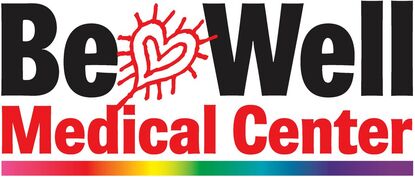|
I believe we may have turned the corner regarding COVID-19 and life should hopefully be beginning to get better. Spring is in the air and it’s starting to blossom outside. We recommend you take the opportunity to safely spend some time outdoors. Take some deep breaths and increase your physical activity. These simple activities can clear your mind and energize your body.
We have seen so many patients come into the office with symptoms of “cabin-fever.” The isolating COVID measures that were put into place for our well-being, had many unintended, but expected consequences. Patients are coming in with many stress related disorders, including chest discomfort and shortness of breath. However, simply by coming in — getting evaluated, perhaps getting an EKG or chest x-ray, and talking with us — gave them reassurance and made them feel better. For many, that was all they needed. Intervention with telephone calls and video tele-visits let us practice the “art of medicine” remotely. We remain open during this pandemic and request you bring your own facial covering when coming to the office. We are still doing “drive-by” COVID-19 screening and taking temperatures and symptom checks at the front door before allowing you entrance inside our building. These actions protect our patients and staff. COVID-19 has been very personal for us too. Caleb Youngblood, PA-C, AAHIVS, was infected, as well as four other Be Well staff members. Everyone has fully recovered and are back to work. Caleb has taken a particular interest in COVID-19. He keeps us updated all the time and has become our “local expert.” He is antibody positive — we will explain what that means later on. He contributed substantially to this update. Also, he is working from home doing telemedical visits, until he fully recovered. We all appreciate Caleb so much. All of our staff are heroes! There has been much discussion surrounding testing for SARS-CoV-2, which is the virus we commonly refer to as COVID-19. We want to make sure that the different types of testing are clear to you.
Using a combination of testing mentioned above we can get a good sense of whether or not people ARE infected with COVID-19, RECENTLY infected, or if they have NEVER had it. The combination of these tests is useful. They help us take the necessary steps to help “flatten the curve” of COVID-19 and to eventually return to some resemblance of “normalcy”. It is important to understand that any one test can not tell the entire story. Antibody tests have been on the news lately. Antibody tests can not predict, nor were they designed to, identify whether or not a person is contagious to others. The swab test looking for the virus itself was the first test that came into existence. It is pretty much standardized and accurate. The antibody tests are currently coming to market with emergency authorization from the FDA for use. It has been reported that these tests may not be as accurate as we would like them to be at the present time. They will get better in time. Medicine is not an exact science. Scientific truths constantly change with new information. Determining what test(s) to perform needs to be individually considered. Antibody tests, at this time, may be more reasonable for research or epidemiology studies of a population's rate of COVID-19 infection. Every situation is different and we are here to determine what the best choice is for you when it comes to ordering tests. It has yet to be determined if you are antibody IgG positive, how long or how effective that immunity would be. Immunity from other COVID type infections is usually about 4-5 months. Some antibodies last a lifetime. Until there is a vaccination or data demonstrating lifetime immunity having the IgG antibodies, whether you are antibody positive or not, you need to practice universal precautions as discussed in our last update to protect yourself. There have been some new symptoms added to the original list of fever, cough, and shortness of breath for COVID-19 to be on watch for. We’ve often seen these new associated symptoms in our patients. They include: loss of taste and/or smell, body aches, headaches, fatigue, shaking, chills, and blue fingers or toes. Take care of yourselves and those around you. If you have any questions or concerns, please ask us. Also…reach out to your friends and family. Let them know how you are doing and ask the same of them. To Your Good Health… We Remain
1 Comment
|
Dr. Paul BensonMedical Director of Be Well Medical Center Archives
August 2021
Categories |
Hours
Mon-Wed: 7:30 am - 5 pm
Thurs.: 7:30 am - 8 pm Fridays: 8 am - 5 pm Select Saturdays: 8 am - 12 noon |
Telephone
|
Email
|

 RSS Feed
RSS Feed